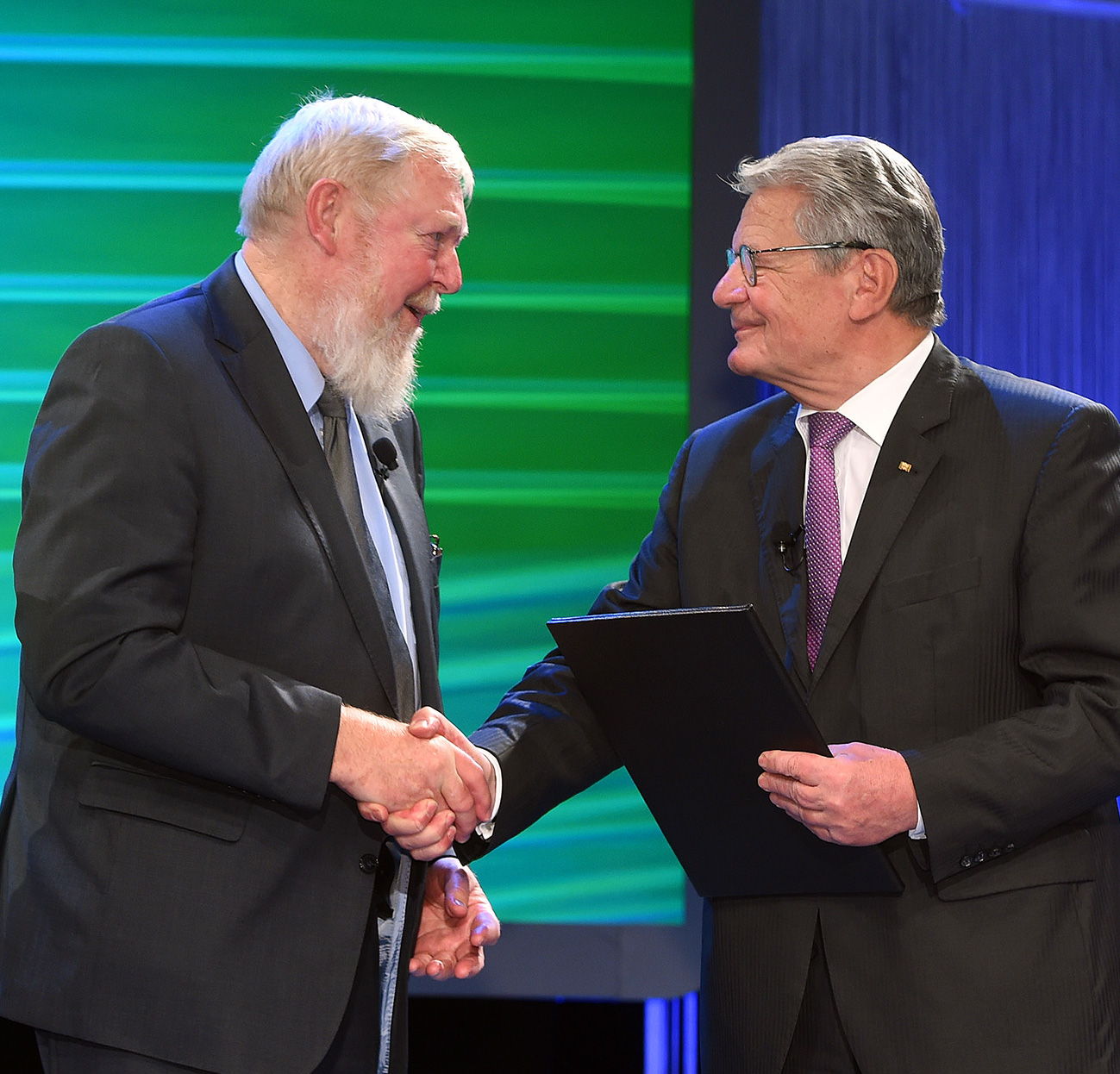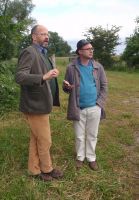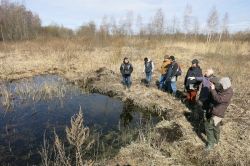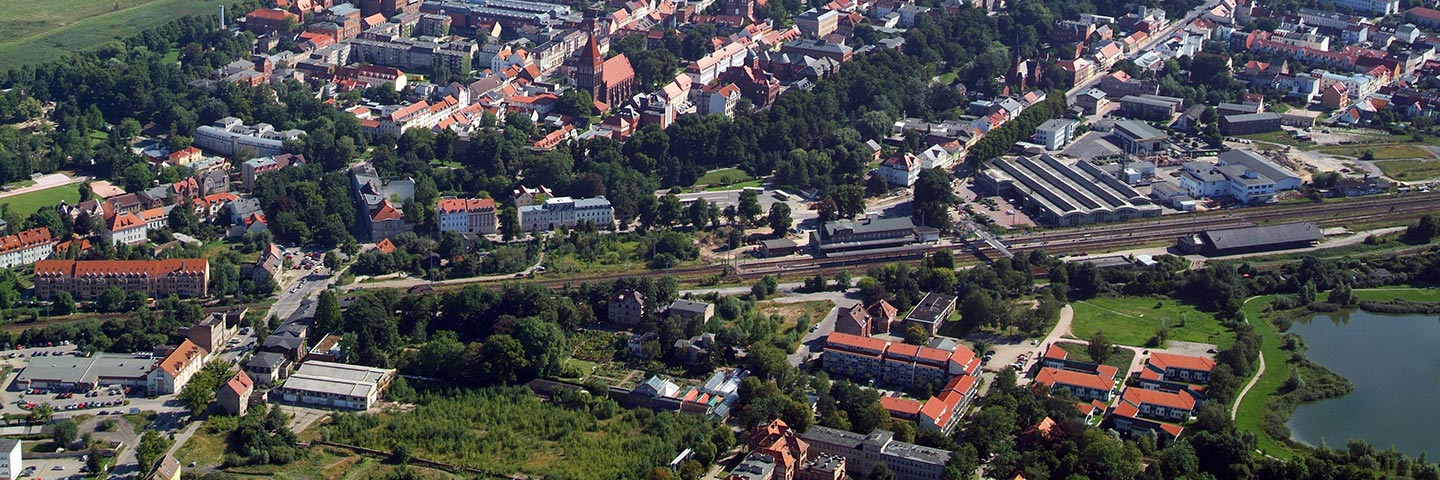News
2015
by NK
HCS+: reports of GMC-experts ready
How the palm oil industry might go green
07/12/2015 GMC-experts contributed to the new "High Carbon Stock Study" (HCS+), commissioned by the Sustainable Palm Oil Manifesto group. The study is supposed to make the palm oil industry switch to more sustainable ways while defining which sort of lands should be considered off-limits for palm oil cultivation, first and for all peatlands. Read and download the Consulting report 5: Practical guidance to locate and delineate peatlands and other organic soils in the tropics by. Dr. Alexandra Barthelmes, in charge of the GMC's Global Peatland Database. Also available now: the „Independent Report from the Technical Committee“ co-authored by GMC-expert Prof. Hans Joosten. There are two press releases on the publishing of the report, "HCS+ Proposes a New Pathway to Sustainable Oil Palm Development" and "HCS+ gets support from key players in the palm oil industry and the Sabah Forestry Department".
The HCS+ met high media coverage including reports of The Economist , nature , Reuters/yahoo news, author and journalist Jonathon Porritt and Economist/youtube. The spread of oil-palm plantations in recent years has destroyed swathes of tropical forest in low-lying tropical areas of south-east Asia and Africa, releasing much of their trapped carbon into the atmosphere, chasing off indigenous communities and putting migrant workers under appalling conditions.
by NK
Watch the wet
Youtube-video on peatlands and their potential for climate protection
1/12/2015 Draining a peatland area the size of a football field releases as much carbon dioxide into the atmosphere as driving three times around the world in an average sized car. Learn more about peatlands as carbon sinks, threats to their carbon storage function by drainage and promising examples of rewetting in the youtube-video “Peatlands – climate regulation and biodiversity“ by the Nordic Council of Ministers.
by NK
Peatlands on the UNFCCC-Agenda in Paris
Side events on restoring and rewetting
1/12/2015 Lecturing at two side events GMC-expert Hans Joosten will be part of the UNFCCC COP21 in Paris.
At the high-level panel debate "Safe the Peat for Less Heat" organised by Wetlands International, GMC and other partners, Joosten will talk about "Peatland issues, potential and options for climate mitigation" at 1st December 15:15-16:15 o'clock at the Netherlands Climate Pavilion. For more information please see the "Briefing paper: accelerating action to Save Peat for Less Heat!"
The UNFCCC side-event ’Reducing GHG emissions by restoring and rewetting peatlands‘ is organized by the Nordic Council of Ministers (NCMR)at Wednesday 2nd December 2015 between 12.15 - 13:45 o'clock at the Nordic Pavillion Hall 2B. Joosten’s lecture on ’The role of drained peatlands in GHG emissions and opportunities for accounting under the new activity ’Wetland Drainage and Rewetting‘ under the Kyoto Protocol‘ is one of the side event’s eight contributions.
by NK
Wetland Energy Closing Conference
New pelletline on the ground, new paludiculture-projects in mind
17/11/2015 Surely, the highlight of the EUaid funded Wetland Energy project's closing conference from 17th-18th November in Minsk/Belarus was the opening of the new processing line for pellets made of biomass from fens at Lida. It proved, that the project, which was mainly coordinated by the Michael Succow Foundation, successfully transferred knowledge and resulted in implementation on the ground. Here the conference's "Conclusions and perspectives" click here for the programme of the closing conference. Ahead of the conference the project held a workshop on "Biomass harvest and greenhouse gas balance of wet and rewetted fen peatlands". For an article on the project and its closing conference go to Настаўніцкая газета (Belarussian only).
.
by NK
German Environmental Award
Michael Succow honoured for lifetime achievement
 08/11/2015 The German Federal Environmental Foundation (DBU) has bestowed GMC member Prof. Michael Succow with its “Honorary Lifetime Achievement Award”. The German Federal President Joachim Gauck presented the award at the award ceremony in Essen at 8th November 2015. As Deputy Minister for Environment, Nature Protection and Water Management of the GDR at the time of great political change in Germany Succow did grasp the historical chance for nature protection. He and his fellows managed to have the "Programme of National Parks" adopted in the very last concluding session of the GDR-Council of Ministers in 1990. Thus, 12.1% of the former GDR were put under temporary and 5.5% under permanent protection. For this coup Michael Succow received the Right Livelihood Award and used the endowment as a basis for his foundation. In the 20 year long history of the German Environmental Award the Honorary Lifetime Achievement Award was granted only five times. It was for example bestowed upon Michail Gorbatschow and Prof. Heinz Sielmann.
08/11/2015 The German Federal Environmental Foundation (DBU) has bestowed GMC member Prof. Michael Succow with its “Honorary Lifetime Achievement Award”. The German Federal President Joachim Gauck presented the award at the award ceremony in Essen at 8th November 2015. As Deputy Minister for Environment, Nature Protection and Water Management of the GDR at the time of great political change in Germany Succow did grasp the historical chance for nature protection. He and his fellows managed to have the "Programme of National Parks" adopted in the very last concluding session of the GDR-Council of Ministers in 1990. Thus, 12.1% of the former GDR were put under temporary and 5.5% under permanent protection. For this coup Michael Succow received the Right Livelihood Award and used the endowment as a basis for his foundation. In the 20 year long history of the German Environmental Award the Honorary Lifetime Achievement Award was granted only five times. It was for example bestowed upon Michail Gorbatschow and Prof. Heinz Sielmann.
by NK
Buckwheat cultivation earlier than thought
Finds of pollen from prehistoric times
The notion is widespread that buckwheat (Fagopyrum) first arrived in Europe in the Late Medieval through trade with the Middle East. Yet, there are numerous finds of pollen and seeds of much earlier time, as research team from the State Museum of Natural History Karlsruhe and Greifswald University (Greifswald Mire Centre) announced in a press release. The experts studied these finds and conclude that it is very likely that buckwheat was present already in Prehistoric times. These finds were recently published in the scientific journal “Palaeogeography, Palaeoclimatology, Palaeoecology”.
by NK
How the palm oil industry might go green
GMC-experts among scientists setting standards
01/08/2015 GMC-experts are among 50 scientists who are currently drafting the new "High Carbon Stock Study" supposed to make the palm oil industry switch to more sustainable ways. They are defining which sort of lands should be considered off-limits for palm oil cultivation, as for example and first and for all, peatlands. The study commissioned by the Sustainable Palm Oil Manifesto group met high media coverage including reports of The Economist , nature , Reuters/yahoo news and The Economist/youtube. The spread of oil-palm plantations in recent years has destroyed swathes of tropical forest in low-lying tropical areas of south-east Asia and Africa, releasing much of their trapped carbon into the atmosphere, chasing off indigenous communities and putting migrant workers under appalling conditions. To set green standards GMC-member Dr. Alexandra Barthelmes, in charge of the GMC's Global Peatland Database, contributed to the Practical guidance to locate and delineate peatlands and other organic soils in the tropics. Prof. Hans Joosten is member of the Technical Committee and co-author of the main report.
by NK
MoorFutures
Paper now in English
01/08/2015 New – the English publication “MoorFutures” has now been made available online by the Federal Agency for Nature Conservation. “MoorFutures” are the world`s first voluntary carbon credits from peatland rewetting developed with the expertise pooled in the Greifswald Mire Centre (GMC). The pilot project demonstrates how additional ecosystem services including biodiversity can be integrated into financing mechanisms for climate change mitigation.
by NK
Guardian reports on "Swamp power"
How the world’s wetland can combat climate change
20/07/2015 After touring paludiculture projects in Germany and Poland guided by experts of the GMC Guardian-correspondent Arthur Neslen now issued his report on peatland rewetting, paludiculture and climate change mitigation. For an entertaining read on all aspects between reed crop and Ramsar Convention go to Swamp power: how the world's wetlands can help stop climate change.
by NK
Paper in Nature Climate Change
Indicators for climate change in the tundra
09/07/2015 Data from 37 sites in 9 countries were collected by Prof. Martin Wilmking (Greifswald University) and other researchers to find sound explanations for climate sensitivity of shrub growth in the tundra biome. Climate sensitivity of growth was greatest at the boundary between the Low and High Arctic, where permafrost is thawing and most of the global permafrost soil carbon pool is stored. The results have now been published in the paper „Climate sensitivity of shrub growth across the tundra biome“ in Nature Climate Change. This work will improve future projections of climate change impacts across the tundra biome.
by NK
Open for public comment
Palm oil industry present a draft synthesis report
3/7/2015 A Draft Synthesis Report of a „High Carbon Stock Study (HCSS)“ of the palm oil industry is now online and open for public comment. This study on carbon stocks is commissioned to independent experts to make the upcoming massive expansion of palm oil cultivation in Southeast-Asia as well as West- and Central Africa ecologically more sustainable and socially more compliant. The protection of carbon sinks in vegetation and soil is one of the key issues. GMC member Dr. Alexandra Barthelmes is in charge of the GMC's Global Peatland Database and contributed to a report on practical guidance to locate and delineate peatlands and other organic soils in the tropics. Prof. Hans Joosten is member of the Technical Committee and co-author of the main report.
by NK
Regional parliament calls for more paludiculture
Across all political parties for more support
3/7/2015 The Parliament of the federal state of Mecklenburg-Vorpommern decided unanimously about the proposal of the leading parties (the social-democratic SPD and the christian-democratic CDU) on supporting paludicultures today (03.07.3015). All speakers stressed the need for more basic and applied research on agriculture and forestry on wet peatlands, building on the current works at the Greifswald Mire Centre.
by NK
“Peatlands and Forests in the Climate Architecture”
DEHSt puts presentations online
29/6/2015 Silvestrum VoF und DUENE e.V.,partner im GMC, presented results of their joint research project „Peatlands and Forests in the Climate Architecture” at a workshop of the German Emissions Trading Authority (DEHSt) at the 4th of June 2015 in Bonn during a side event at SBSTA42 to the UNFCCC . The DEHSt has now put the report and presentations online. “Peatlands and Forests in the Climate Architecture” describes political and economic possibilities for regulating climate change mitigation from peatlands and forests. The research project was financed by the Federal Environment Agency.
by NK
Taking GEO journalists into the wet
Latest edition reports on Greifswald peatland experts
29/6/2015 For an article in the current GEO edition the magazine’s journalists accompanied the GMC scientists on an excursion into peatlands of Karelia. Text: The current edition of GEO provides an entertaining read and brilliant pictures on GMC experts’ research in Karelian peatlands. The magazine’s journalists accompanied the scientists into the North-West of Russia last summer. Despite wet feet and dry comments the reporters got plenty of information on peatlands and their potential for climate protection. Read about thinking peatlands, comparisons to whiskey on ice and plants as skilled starvationists – unfortunately in German only.
by NK
Small bird, great dissertation
Doctor’s thesis on the Aquatic Warbler
29/6/2015 End of June Cosima Tegetmeyer has successfully defended her dissertation „The Aquatic Warbler in the Djoudj National Park area – Aspects of its wintering ecology”. The globally threatened Aquatic Warbler is breeding in fen mires of Eastern and Central Europe and wintering in West-Africa. Tegetmeyer’s dissertation is a good example for linking science and practice at the GMC: Her scientific results yielded four publications in peer-reviewed journals and at the same time helped improving the land management for Aquatic Warbler protection by the Djoudi National Park Administration.
by NK
Peatland Management Practices online
MICCA presents case studies of Paludiculture
19/6/2015 The Mitigation of Climate Change in Agriculture (MICCA) Programme of the Food and Agricultural Organization of the United Nations (FAO) made case studies on peatland management practices available online. Included are the case studies on sphagnum farming projects at Greifswald University and the “Wetland Energy”-Projekt of the Michael Succow foundation in Belarus. Both institutions are partner in the GMC.
by NK
Guiding “The Guardian“ in rewetted areas

English daily paper plans extensive report
19/6/2015 From 15th-16th June experts of the GMC took Arthur Neslen, Europe environment correspondent at the Guardian, on a tour of paudiculture projects in Germany and Poland. Neslen is currently researching for extensive reporting on peatland rewetting, paludiculture and climate change mitigation. The Brussels based journalist visited reed beds in Rozwarowo, East of Świnoujście/Poland where reed is cultivated for thatching. In the Peenevalley and at Lake Kummerow, both in North-Estern Germany, Neslen gained impressions on further sustainable utilisation of rewetted areas(paludiculture) e.g. of pasture with water buffaloes on rewetted polder Rustow-Randow or on peatland meadows near Neukalen. Sedges, canary grass and reed growing here are used for energy generation in Germany’s first fen biomass heating plant in Malchin near Greifswald. It provides heating for 650 houses, the local kindergarden and a school. At Neukalen and Malchin Neslen got first hand information by peatland farmer and plant manager Ludwig Bork.
by NK
Resolution on „Peatlands and climate change“
RAMSAR reacts on call of the Nordic Council
12/6/2015 The Ramsar Convention on Wetlands adopted several resolutions including the resolution on 'Peatlands and climate change’ at its 12th Meeting of the Conference of Contracting Parties (COP12). The resolution is part of the new Strategic Plan combating factors that drive wetland loss and degradation from 2016 to 2024. Key decisions for its implementation include the key role of peatlands in climate change regulation. The COP 12 at Punta del Este/Uruguay thus reacted on a call of the Nordic Council of Ministers for the Environment to preserve peatlands for climate change regulation, conservation of biodiversity and providing ecosystem services. The statement is based on a recent report ‘Peatlands and Climate in a Ramsar context - A Nordic-Baltic Perspective’ which was prepared for the Nordic Council by experts of Greifswald University (Germany), partner in the GMC, and Risager Consult (Denmark).
by NK
Nordic Council calling for more peatland protection
Ramsar Convention welcomes statement ahead of COP 12
In a joint statement the Nordic Council of Ministers for the Environment is calling the 12th Meeting of the Conference of Contracting Parties to the Ramsar Convention on Wetlands (COP12) to preserve peatlands for climate change regulation, conservation of biodiversity and providing ecosystem services. The statement is based on a recent report ‘Peatlands and Climate in a Ramsar context - A Nordic-Baltic Perspective’, which was prepared for the Nordic Council by experts of Greifswald University (Germany), partner in the GMC, and Risager Consult (Denmark). The Ramsar Convention already welcomed the statement in a press release ahead of the COP 12 from 1st-9th June in Punta del Este (Uruguay).
by NK
‘Peatlands and Climate in a Ramsar context’
Report on Nordic Baltic wetlands
Recently published, the report ‘Peatlands and Climate in a Ramsar context - A Nordic-Baltic Perspective’ summarizes available information on extent, distribution and status of peatlands in the countries of the The Nordic Baltic Wetlands Initiative (NorBalWet, RAMSAR). Besides a country by country assessment, this report discusses the challenges and opportunities to improve the management of peatlands in the NorBalWet countries for climate change mitigation. A key finding of the report: Almost half (46%) of the peatland area of the studied NorBalWet countries has been drained and is now emitting over 75 Mt of CO2 annually. This constitutes a substantial part of the total CO2 budgets of the NorBalWet countries, given that peatland CO2-emissions equal 34% of total CO2-emissions from all other sources combined (excl. land use). The report is a collaboration of the Greifswald Mire Centre, Greifswald University and Risager Consult (Denmark). It has been funded by the Nordic Council of Ministers.
by NK
Paludiculture on Expo 2015 in Milan
Short film in the German Pavilion
A short film on paludiculture is presented in the German Pavilion at this year’s Expo in Milan. In the thematic area on climate the research on paludiculture at the GMC is shown as one of the projects for climate friendly and sustainable agriculture as well as a contribution of the federal state of Mecklenburg-Western Pomerania. Visitors can select and watch the film on an interactive platform. The German Pavilion at the Expo Milan 2015 wants to present innovative ideas from Germany addressing the basis of the world’s future nutrition. The Expo is dedicated to the motto „Feeding the Planet, Energy for Life". Mecklenburg-Western Pomerania will have a special week at the pavilion from 18th to 25th May.
by NK
Nominated in the Netherlands
Prof. Hans Joosten is nominated for the Dutch Climate Award 2015
Radboud University (Prof. Leon Lamers) and Landschap Noord-Holland (director Ernest Briët) have jointly proposed Prof. Hans Joosten for the Durch Climate Award 2015. The nomination shall dignify his achievements in mire conservation and promotion of paludiculture. The award ceremony will take place 26 June 2015 in Utrecht.
by NK
High level study-tour
Guiding Russian officials for more peatland conservation and rewetting
In April 2015 a study tour led high level officials of ministries from the regions Moscow and Tver to restored peatland sites in Germany and the Netherlands to inform about methods and application of rewetting. MoorFutures, the world’s first voluntary carbon credits from peatland rewetting, were presented as an instrument of climate change financing at a workshop organised by the Federal Agency for Nature Conservation (BfN) in Bonn. Whether this instrument, which was partly developed by experts of the Greifswald Mire Centre (GMC), might possibly be applied in Russia as well, was subject to lively discussion. In the Netherlands the delegation visited the headquarters of Wetlands International for a project partner meeting and the large scale restoration site Bargerveen at the border of Dutch-German border. The participants were impressed by this rewetting project and the returning nature. The study tour was organised by Wetland International and the Michael Succow Foundation, partner in the GMC, within the project Peatland restoration in Russia.
by NK
Establishing the idea of paludiculture in Russia

Workshop at Tver University
On April the 21st and 22ndan international workshop on paludiculture took place at Tver State Technical University in Russia. Main objective was to promote the ideas of paludiculture in Russia, especially as economic incentives for peatland rewetting for fire prevention and climate change mitigation. Presentations included results of a pilot study on the cultivation and utilisation of reed in Tver region and of other projects, e.g. the Wetland Energy project in Belarus.
The workshop was jointly organized by the Peat Institute of the Tver State Technical University and the Michael Succow Foundation, partner in the Greifswald Mire Centre, within the project for Peatland restoration in Russia. During the workshop experimental sites for reed establishment of Tver peat institute (photo) have been visited.
In Tver there is high interest in a closer future cooperation with the Greifswald Mire Center (GMC), especially the Michael Succow Foundation. The exchange of knowledge and expertise within the field of paludiculture is considered an essential to propagate the sustainable peatland management in Russia.
by TM
Historian at the Greifswald Peatlands Library
Researching Russian rural and environmental history
Katja Bruisch from the German Historical Institute Moscow is interested in the rural and environmental history of modern Russia focussing on the interplay between ideology, knowledge and politics. After a PhD dissertation on agricultural experts in the late Tsarist and the early Soviet periods, she is now preparing a research project on peat exploitation in 20th century Russia. Using the Greifswald Peatland and Nature Conservation International Library (PeNCIL) she is studying questions of peatland ecology and conservation.
by TM
Sphagnum farming is ‘rethinking rural spaces'
Project is official 'Landmark in the Land of Ideas' 2014
'Sphagnum farming', a research project of the University of Greifswald in cooperation with the peat factory Mokura in Ramsloh and other partners, is one of the 100 landmarks in the Germany-wide competition 'Land of Ideas' 2014. The contest is themed 'Innovative Country – Rethinking Rural Spaces'. The award has been celebrated 27. März 2015 at the experimental site in Hankhausen. About 1,000 research institutions, companies and NGOs participated in the contest.
See also:
Landmarks in the Land of Ideas - Sphagnum farming
Greifswald's project 'Peatmoss' is 'Landmark in the Land of Ideas








